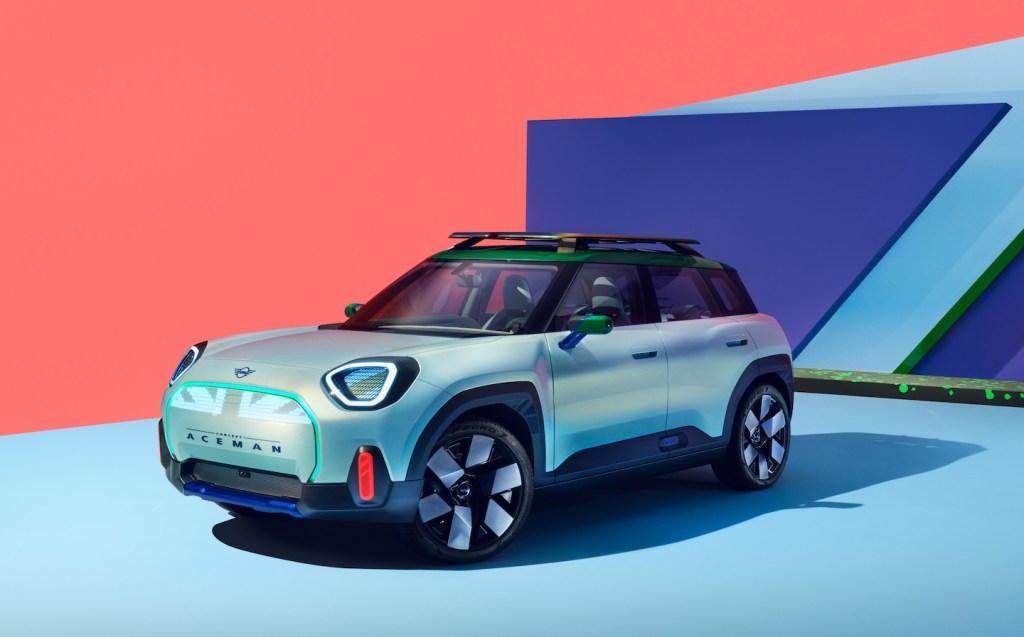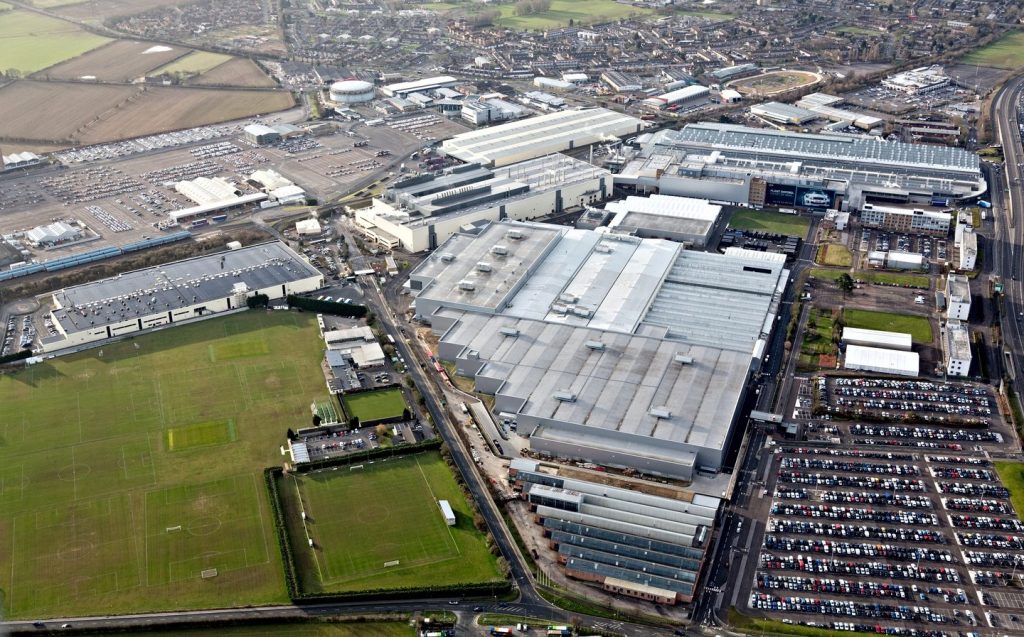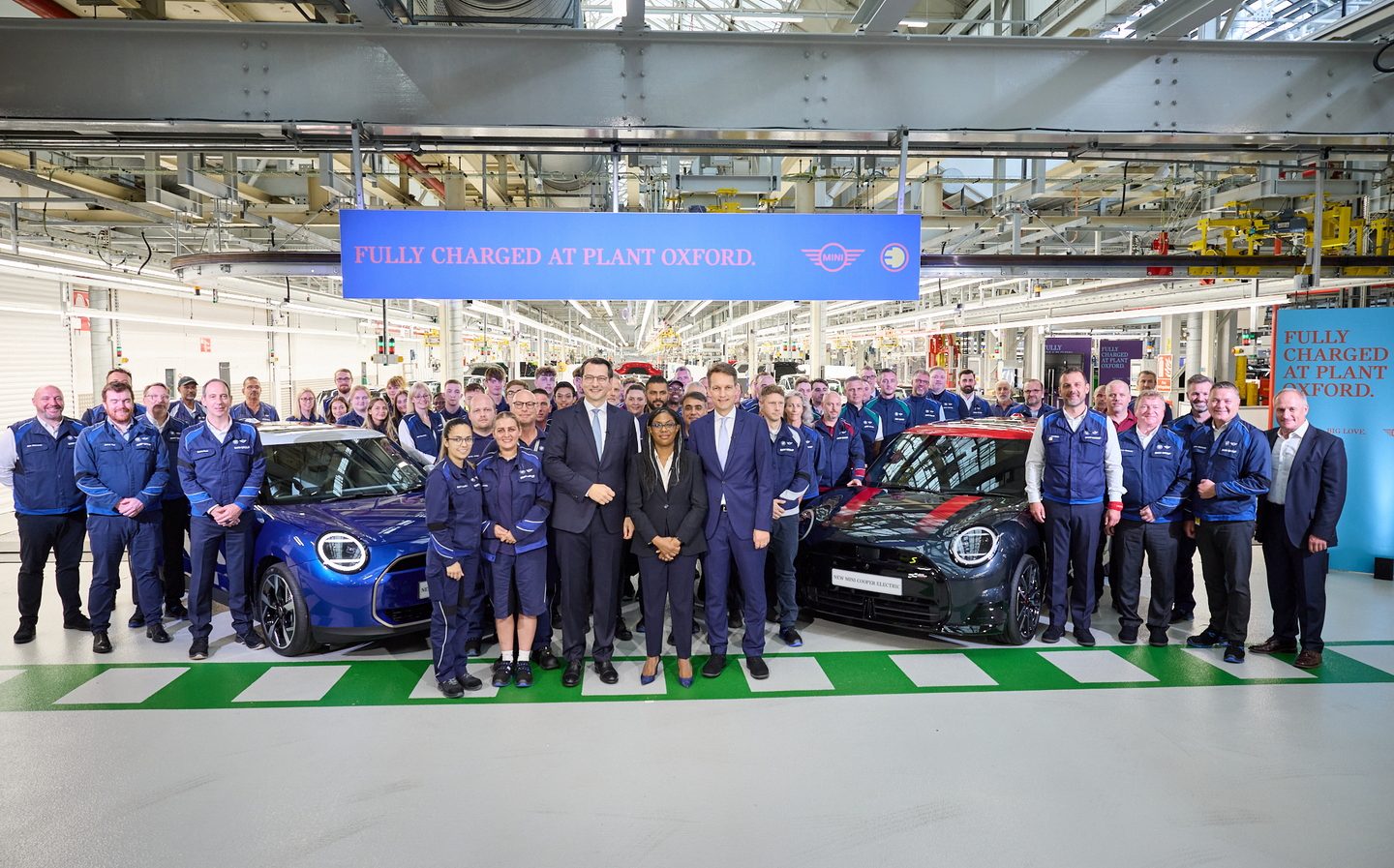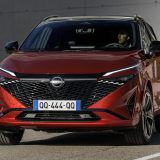Mini invests £600 million in British factories in Oxford and Swindon in preparation for all-electric future
Aceman crossover to follow in 2026
Mini has confirmed that its factory in Cowley near Oxford will continue to build electric Minis after the end of production of the current Mini Electric.
Mini has just revealed two of its new electric models at the IAA Mobility motor show in Munich, the new Mini Cooper and the Countryman SUV. The Cooper uses an electric platform co-developed with Great Wall Motors in China.
Originally it had seemed that Mini’s factory in China would build the new electric hatchback, leaving the Oxford plant to manufacture the petrol-engined versions. That has now changed, and thanks to a major £600 million investment by BMW — owner of the Mini brand since it bought out Rover Group in 1994 — electric Mini hatchbacks will be built in Oxford starting in 2026, two years after China begins building the new model. It means that the 4,000 jobs shared between Mini’s UK facilities in Oxford, Swindon and Hams Hall near Birmingham, are secured in the medium term.
Mini Aceman will be second EV made in the UK

It won’t be the only electric Mini to be built at Oxford, either, as Mini confirmed that the upcoming Aceman — a low-slung crossover bridging the gap in size between the Mini Cooper and the larger Countryman, effectively replacing the outgoing Mini Clubman estate.
The new Countryman won’t be built in the UK but instead at BMW’s factory in Leipzig, as it shares a chassis, electric motors and engines with the BMW X1 also built there.
Stefanie Wurst, Head of the Mini brand, said: “Mini has always been aware of its history – Oxford is and remains the heart of the brand. I am delighted that the two new, fully electric Mini models – the Mini Cooper and Mini Aceman – are also being produced in Oxford, thereby confirming our path to a fully electric future. The continuing high demand for our locally emission-free vehicles shows the openness of the global Mini community to electromobility, which we will be able to serve optimally in the future, also thanks to Oxford.”

The move means that Oxford will produce four models from 2026 — the three- and five-door hatchbacks with petrol power, the three-door electric Mini and the Aceman. It’s likely — but still not officially confirmed — that a five-door electric Mini hatch will be added in due course.
To make room for these new models in Oxford, Mini will modify, modernise and extend the existing production lines, as well as adding a new section to the factory dedicated to battery installation.
Aiming to reduce carbon emissions
“I am proud to say that our Oxford and Swindon plants will play a central role in the BMW Group’s transition to electromobility. We are determined to continue the historic success story of our plants, producing the most loved British car brand”, said Markus Grüneisl, CEO of Plants Oxford and Swindon.
The factory in Swindon produces body panels and other components for the Mini hatchback while the plant at Hams Hall makes engines. In total, BMW says that it has invested £3 billion in the three factories since 2000, when the original ‘new’ Mini was launched.
A key part of the plans will be to reduce the carbon dioxide emissions of the factory. Already, the roof of the Oxford facility has 11,500 photovoltaic solar panels covering 20,000 square metres, an area equivalent to five football pitches. These generate enough electricity to power 850 households (over three megawatts) and reduces the plant’s footprint by approximately 1,500 tonnes of carbon dioxide per year.

Currently, the plant runs at a capacity of around 1,000 cars per day, with a new Mini rolling off the line every 67 seconds. Both the Oxford and Swindon factories will be fully 3D-scanned in the coming months so that better and more efficient internal layouts and support systems can be built.
Government backing
The investment by Mini has been backed by the British government, although to what extent has not yet been revealed. Prime Minister Rishi Sunak said “BMW Group’s investment is another shining example of how the UK is the best place to build cars of the future. By backing our car manufacturing industry, we are securing thousands of jobs and growing our economy right across the country.”
Business and Trade Secretary Kemi Badenoch said: “This decision is a big vote of confidence in the UK economy and the work of this Government to ensure the continued strength of our world-leading automotive sector. We are proud to be able to support BMW Group’s investment, which will secure high-quality jobs, strengthen our supply chains, and boost Britain’s economic growth.”
The new Mini Cooper hatchback will have a one-charge range of between 200 and 250 miles, depending on model, with prices set to start from £30,000 on the road.
Related articles
- If you liked reading about the investment in UK’s Mini factories, you might also like to read more about the Mini’s new built-in video gaming system
- You may also like to check out all the car makers’ electric vehicle plans
- Wondering what are the best EVs right now? Check out our electric car reviews here
Latest articles
- Omoda 5 prototype review: Bargain family SUV is solid first effort for new Chinese brand
- Dacia Duster 2024 review: Rugged, affordable SUV modernised with electrification and quite the glow up
- Audi A3 Sportback 2024 review: Softly, softly, catchy premium hatchback buyer
- New electric-only Mini Aceman fills gap between Mini Cooper hatch and Countryman SUV
- Tesla driver arrested on homicide charges after killing motorcyclist while using Autopilot
- Porsche Macan 2024 review: Sporty compact SUV goes electric, but is it still the class leader for handling?
- F1 2024 calendar and race reports: What time the next grand prix starts and what happened in the previous rounds
- Aston Martin DBX SUV gets the interior — and touchscreen — it always deserved
- Nissan unveils bold look for updated Qashqai, still made in UK














